Workforce Development
Growing Workers in Pennsylvania
Workforce development is key to increasing masonry market share.
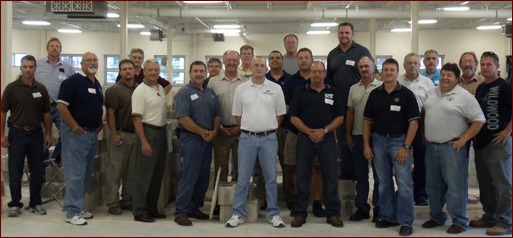
The bond between the mason contractor and product suppliers is key to increasing market share for masonry construction projects. With this in mind, the Pennsylvania Concrete Masonry Association (PCMA) has worked diligently over the years to ensure there are enough well-trained masons to handle the volume of work generated.
Although the membership of PCMA consists of those who produce structural concrete masonry, segmental retaining walls and pavers as well as those who supply products and services to the industry, the PCMA Board of Directors recognizes the importance of training students who will become part of the masonry workforce. Through the PCMA Workforce Development Committee, programs are created that facilitate mason training with a focus on secondary and post-secondary education.
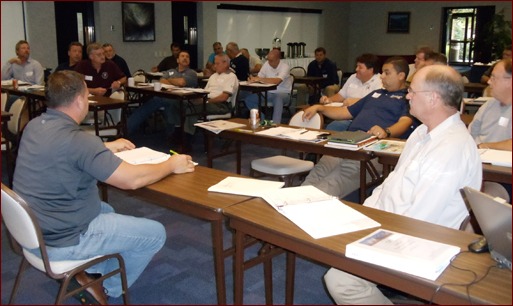
Masonry Instructors Workshop
Pennsylvania is fortunate to have 40 secondary and three post-secondary vocational education schools with masonry programs. In order to provide support to the instructors of these programs, PCMA ramped up the level of involvement with the schools in 2006, by holding the First Annual Masonry Instructors Workshop. This all-day event is coordinated by PCMA and has been funded for the last seven years by the PCA Northeast Cement Shippers Association. The PCMA works with the Pennsylvania Department of Education (PDE) to have their support and cooperation by providing Act 48 Education Hours for the instructors who attend, participating in the event, and encouraging school administrators to allow the masonry instructors to leave the classroom for the day to attend. PDE representatives present programs at the workshop to update instructors on the latest information for their programs, including Programs of Study, new instructor pre-requisite requirements, and articulation agreements with post-secondary institutions.
The purpose of the workshop is to provide a forum for the exchange of ideas and assistance for teaching young men and women to have the best possible skills for entrance into the workplace or for post-secondary education. Some of the topics addressed over the years included Masonry Business and Employability Skills, Creative Student Incentives and Competency Checklists, Safety on the Job Site and in the Classroom, Certification Programs for Vo-Tech Schools, Masonry Fireplaces, Grout & Mortar, Training to Judge Masonry Competitions, Recruitment, Program of Study and Testing Roundtable with PA Department of Education and NOCTI, Restoration with Masonry.
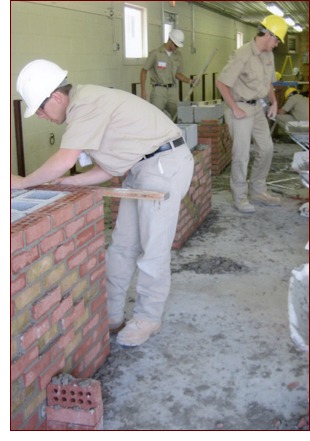 Masonry Instructors Association of Pennsylvania
Masonry Instructors Association of Pennsylvania
At the 2007 Workshop, PCMA lead a discussion about the possibility of forming the Masonry Instructors Association of Pennsylvania (MIAP). The instructors voted unanimously to create this association, which runs as a committee of PCMA, to give them a stronger voice with the PA Department of Education as well as the NOCTI testing agency and other entities that can impact masonry education. The PCMA Board approved, and the new association has been in existence since then and has autonomy within their program of work and budget. The chairman of the PCMA Workforce Development Committee is designated member and the PCMA executive director is the administrator.
The result of the formation of MIAP has been overwhelming in several ways:
- The number of instructors who are members (31 at this time) and how they have networked with each other
- Administrations who regard MIAP as a valuable opportunity
- The PA Department of Education recognizing this unified group with a strong voice for masonry.
The networking of masonry instructors and industry professionals to share resources and information has proven most beneficial to each instructor’s growth and success. MIAP members communicate regularly at face-to-face meetings, and by email and phone, and receive valuable industry information through emails from PCMA on a variety of topics.
The Impact of MIAP
The MIAP members are dedicated to finding and maintaining qualified masons with the desire to teach masonry with the knowledge and skill level required to train masons who can construct buildings that will last hundreds of years. At an MIAP meeting, a formal motion was made to contact the Department of Education to express concerns for the proposed methods of qualifying new masonry instructors. This new method was indicated to include only an interview process and no hands-on skill checks. It also only required an applicant to have two years of experience as a mason. We were aware of the challenge PDE faces in identifying individuals with adequate trade experience, combined with the ability to use those skills to teach others. Our concern was in the fact that masonry is one of the few professions that is not only a vocation, but also ability. It is as much an art form as it is a skill.
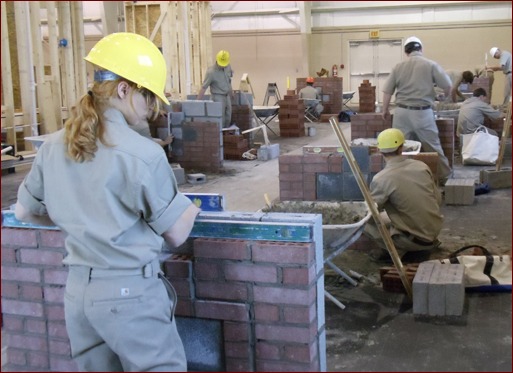
It takes many years to develop not only the knowledge of the trade, but also the ability to manipulate the trowel. A mason would unlikely be considered a master of his craft after only two years of experience. We asked for consideration of revising the selection process to require six years of experience, a written test and a hands-on skill test to adequately access ability to teach others. We wished to maintain the high standard of quality and experience for masonry instructors, and stand ready to assist in this important process by helping to develop the appropriate tests for the curriculum needed. The outcome was that the hands-on and written test were reinstated.
In another instance, one of the instructors discovered that the cut score for passing the NOCTI test for the brick and block masonry tests was to be increased significantly, which would impact the graduation status of seniors at the secondary level. MIAP was able to advocate having the cut score changed to an appropriate level so as to properly test the skill level of the student while maintaining the level of cut score more similar to other curriculums.
Skills PA
For many years, the Skills PA Masonry competition was held, but languished at the secondary level with only the post-secondary doing well at the national level. One of the first projects the MIAP group decided to pursue was to put more emphasis on the Skills PA competition, to showcase the talent of the students at both the secondary and post-secondary levels. We developed a more coordinated program, trained on how to judge a competition, and awarded $500 for each of the secondary and post-secondary winners. The results have been increased interest in Skills PA among the students and instructors, a higher level of skill in the competition and national winners.
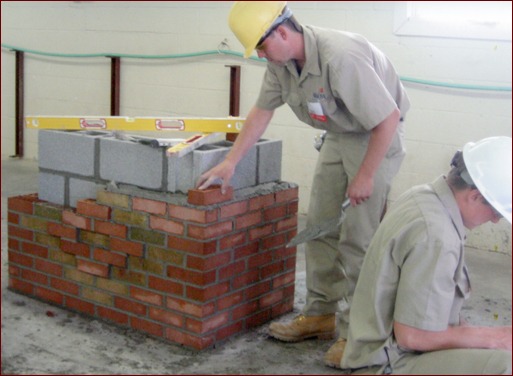
In addition to these programs, PCMA supplies a tool bag with tools and a level to each school for its top masonry student, and recruitment materials and support to bring in good students to the programs.
For more information on the Pennsylvania Concrete Masonry Association, the members and activities, log onto www.pacma.com or call 717-279-6346.
| In the News |
| Following the success of Go Build Alabama, the Alabama Workforce Development Initiative has expanded its recruitment program to Georgia in partnership with the Georgia Governor’s Office of Workforce Development. Go Build aims to enhance the image of the skilled craft trades and recruit the next generation of workers, with an emphasis on industrial and commercial construction careers.
On Jan. 17, 2012, Georgia Gov. Nathan Deal announced plans to launch Go Build Georgia, which will build on the success of Go Build Alabama, launched in August of 2010. Both recruitment programs are partnering with Mike Rowe, executive producer and host of Discovery Channel’s “Dirty Jobs,” and his MikeRoweWorks.com initiative. Rowe’s website and foundation call attention to the growing skills gap, while providing a comprehensive resource for anyone looking to investigate a career in the skilled trades. The Alabama Workforce Development Initiative, a 501c3 created to develop a successful recruitment program for skilled craft trade labor, worked to establish the Go Build brand with the goal of expanding it across the South and beyond. Go Build aims to address current and forecasted needs in skilled labor. According to the Bureau of Labor and Statistics Current Population Study, more than one-third of skilled tradesmen are older than age 50. For every three tradesmen who retire, only one is in the education pipeline to replace them. Bob Woods, executive director of AWDI, says his organization hopes to develop partnerships with additional states to combat this looming shortage with a common message – Go Build. Woods says that, while AWDI set the wheels in motion for the development and expansion of Go Build, each state program is operated by local organizations. Go Build Alabama is managed by the Alabama Construction Recruitment Institute and Go Build Georgia is a project of the Office of Workforce Development. Go Build has been endorsed officially by the Construction Users Roundtable (CURT), an international organization founded by construction and engineering executives representing major corporations all across the globe, as their image enhancement and recruiting program. The initiative is a labor-neutral program. Woods says CURT’s endorsement along with Go Build’s partnership with Mike Rowe and its track record of success to date give Go Build the foundation it needs to continue expanding in the months and years to come. |